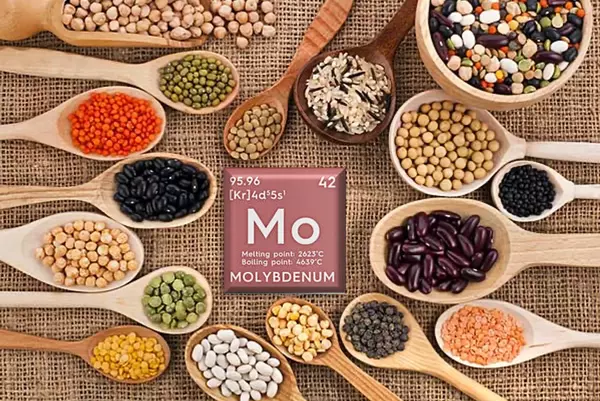Mthfr and magnesium DNA

If you tested your DNA with a personal genomics service like 23andMe, AncestryDNA, FamilyTreeDNA, MyHeritage or another testing company, you can learn more about your risk factors for hundreds of diseases. By clicking the button above ⬆️, you can upload your raw DNA data file and receive a personalized 250-page health report with research links that is the most comprehensive.
Magnesium stands out as one of the most vital nutrients for overall health, facilitating over 300 bodily reactions essential for mental well-being, energy generation, restful sleep, blood sugar control, cognitive prowess, and various other aspects of wellness. The standard Recommended Dietary Allowances for magnesium typically fall within the range of 300-400mg. However, during periods of heightened mental, emotional, or physical stress, our demand for magnesium may escalate. Additionally, certain medical conditions and medications can exacerbate magnesium deficiency. For instance, specific blood pressure and heartburn medications can impede magnesium absorption, further complicating the maintenance of adequate magnesium levels. Magnesium serves as a crucial cofactor in various processes within the methylation cycle:
MAT1A: This gene produces S-adenosyl methionine (SAM-e), which has demonstrated benefits in improving depression, osteoporosis, and liver health.
GSS (Glutathione Synthetase): The process encoded by this gene generates glutathione, the body's primary antioxidant. Glutathione safeguards tissues and DNA from damage and is implicated in numerous conditions involving inflammation. Its production relies on cofactors like magnesium.
MTHFS: This gene produces methenyltetrahydrofolate synthetase, regulating the folate cycle crucial for cellular function. Defects in the folate cycle are associated with birth defects, heart and neurological diseases, osteoporosis, cancer, and kidney disease.
COMT (Catechol-o-methyltransferase): This gene plays a significant role in neurotransmitter regulation, including dopamine, epinephrine, and norepinephrine. COMT issues are linked to neurological disorders like Parkinson's disease.
PTS (6-pyruvoyltetrahydropterin synthase): This enzyme regulates dopamine and serotonin levels in the brain and also produces nitric oxide synthase (NOS), promoting heart health and blood vessel formation.
SPR (Sepiapterin reductase): This gene influences serotonin and dopamine levels in the brain. Deficiencies can lead to muscle regulation issues such as involuntary muscle contractions.
Follow the link of the selected polymorphism to read a brief description of how the selected polymorphism affects Magnesium and see a list of existing studies.
SNP polymorphisms related to the topic Magnesium:
| rs4561213 | Polymorphism affecting serum magnesium, potassium and sodium levels. |
| rs3925584 | Polymorphism affecting serum magnesium, potassium and sodium levels. |
| rs2592394 | Polymorphism affecting serum magnesium, potassium and sodium levels. |
| rs13146355 | Polymorphism affecting serum magnesium, potassium and sodium levels. |
| rs7965584 | Polymorphism affecting serum magnesium, potassium and sodium levels. |
| rs11144134 | Polymorphism affecting serum magnesium, potassium and sodium levels. |
| rs6584273 | Polymorphism affecting serum magnesium, potassium and sodium levels. |
| rs448378 | Polymorphism affecting serum levels of magnesium, potassium and sodium. Also increases the risk of hypertension. |
| rs4072037 | Polymorphism affecting serum levels of magnesium, potassium and sodium. Also associated with risk of gastric cancer. |
| rs3750425 | Increases the risk of proton pump inhibitor-induced hypomagnesaemia. |
| rs752010 | Contributes to decreased serum magnesium levels and increased risk of type 2 diabetes. |
| rs7045949 | A genetic variant of melastatin, plays a central role in magnesium homeostasis, which is critical for maintaining glucose and insulin metabolism. |
| rs6560408 | A genetic variant of melastatin, plays a central role in magnesium homeostasis, which is critical for maintaining glucose and insulin metabolism. |
| rs7859201 | A genetic variant of melastatin, plays a central role in magnesium homeostasis, which is critical for maintaining glucose and insulin metabolism. |
| rs35804026 | |
| rs1333343 | |
| rs2254229 | |
| rs11144085 | |
| rs2274925 | |
| rs7174119 | |
About The Author
Li DaliLi Dali, a National Foundation for Outstanding Youth Fund recipient, is a researcher at the School of Life Sciences in East China Normal University. He earned his PhD in genetics from Hunan Normal University in 2007 and conducted collaborative research at Texas A&M University during his doctoral studies. Li Dali and his team have optimized and innovated gene editing technology, leading to the establishment of a world-class system for constructing gene editing disease models.


